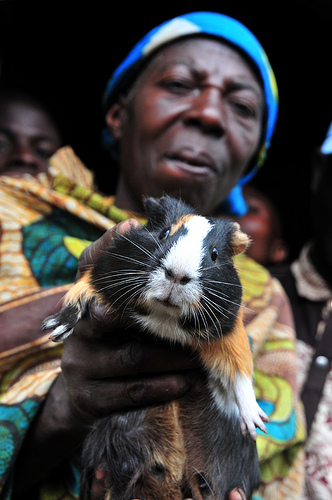Today’s Economist has a Leader and two articles about feeding the hungry, one on Monsanto and one on markets. Not surprising, coming hard on the heels of this week’s World Food Summit.
There’s also this at the Economist blog, a neat information-rich video that explains IFPRI’s view of climate change (including differences in prediction between two models) and the consequences for global food supply.
Of course one could quibble with details, but the bigger quibble is with the Economist’s own double-vision. Or do I mean blindness? The Leader has a headline of How to feed the world and Business as usual won’t do it as a snappy sub-head. But the solutions it offers — GM drought-resistant crops, access to markets — are business as usual.
As speaker after speaker at the World Food Conference reminded us ad nauseam, the problem of global hunger is not about quantity of food, it is about availability and affordability. And as we’ve written before, it would be a doddle to grow all the food the world will need in 2050 on a small fraction of the land currently occupied by agriculture. The Economist’s “solutions” do nothing to help the poorest rural farmers, who want to minimize risk, not maximize production. Nor do they want to sit about waiting for a shipment from somewhere or other. They need research that will help them make better use of agricultural biodiversity. But as long as economists build their models on foundations of old data (and to be fair, what else are they to do?) it will never make sense to them to invest in a new approach.
What is needed is for someone — donor or private foundation — to back a hunch.
